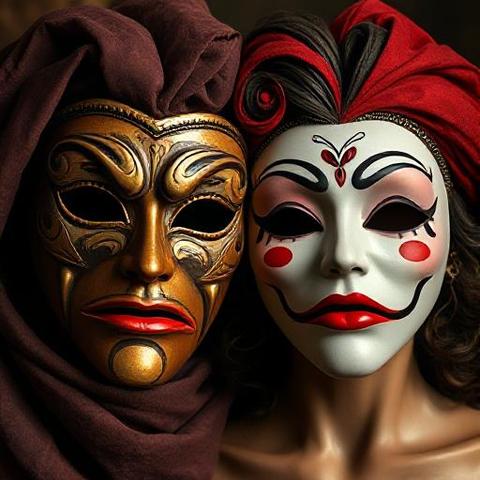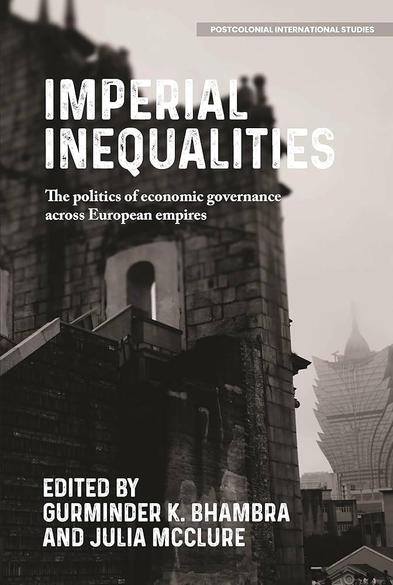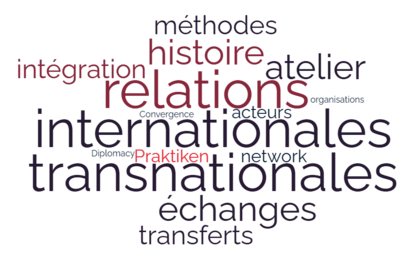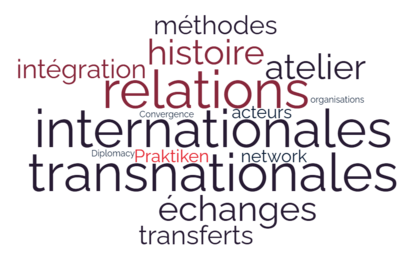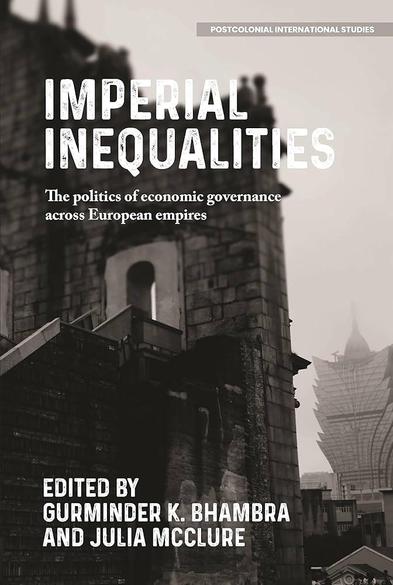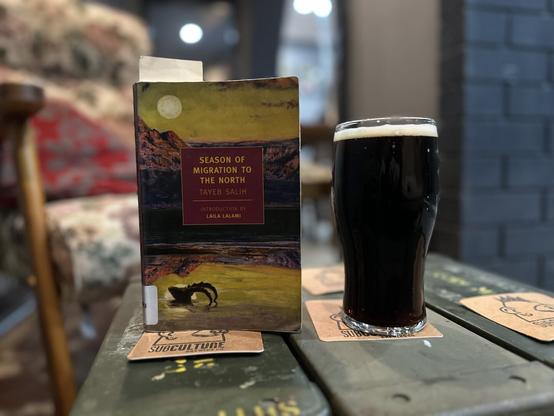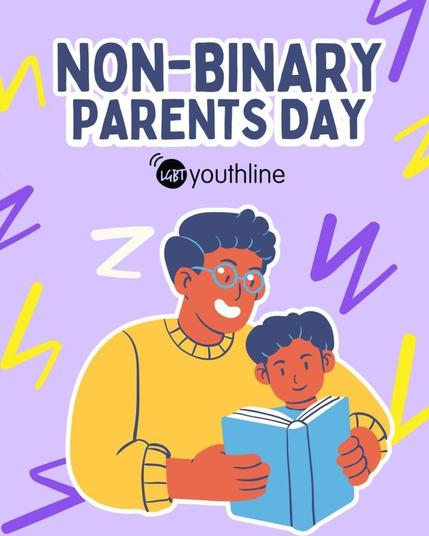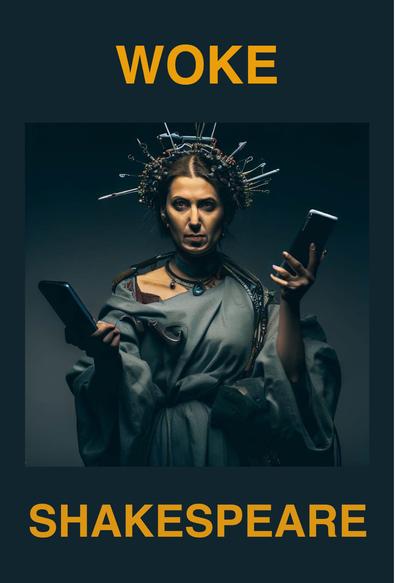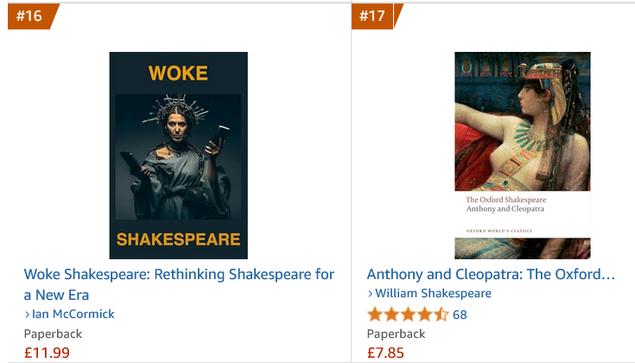Decolonising our Minds – Didrevesiga agan Brysyow
A Reply to One
of Krann’s Six Ideas
Krann raises fair points when they argue that colonial metaphors used to make sense of the Cornish experience in relation to the British state appear “anecdotal” and tend to rest on “overused narratives about Tudor rebellions and the industrial revolution”. My answer is: let’s all move onto post-colonial ways of thinking.
Gorthyp orth Onan
a Hwegh Tybyans Krann
Krann a venek poyntys ewn pan arg an metaforow trevesigel usys dhe ri styr a’n prevyans Kernewek ow tochya stat Bretennek dhe heveli bos “hwedhlek” ha tuedha posa war “hwedhlow gorusys a dhomwhelansow Tudor ha’n hweldro diwysyansek”. Ow gorthyp yw: movyn orth fordhow tybi wosa-trevesigel.
A Reply to One
of Krann’s Six Ideas
Krann raises fair points when they argue that colonial metaphors used to make sense of the Cornish experience in relation to the British state appear “anecdotal” and tend to rest on “overused narratives about Tudor rebellions and the industrial revolution”.
Such is the power of the grand narrative that is underpinning conventional English history for our detractors that they frequently become the source of amusement and derision. It’s easy to see why. They point to a past of little relevance to most people’s lives in the 21st century. The fragments that survive tend to be romanticised and commodified by people for different reasons. The power of the state-influenced national curriculum and intellectuals in academia, sustained by universities, ensured that meaningful study of Cornish history was always marginalised. Little wonder then that those who challenge the dominant narratives about Kernow find themselves, often as not, “howling into the wind”
Most people’s understanding of colonialism will come from the push against the last three centuries of empire building by Western European states, but my answer to Krann’s challenge is: let’s all move onto post-colonial ways of thinking.
Kernow was colonised a long time ago. We forgot and then remembered. Like any attempt at recovering actual events, memories will be scarce, imperfect, even incorrect. Nevertheless, the sense of something not quite right about what those in power care to tell us about ourselves persists.
Meanwhile, as a people we tend to be ‘othered’ and literally patronised. So let’s insist on our existence, insist on being more than mere background characters to a romantic fantasy and take control of our own stories. How? By recognising the role language has to play in the scheme of things. Tell our own stories to each other and to others with similar experiences. Challenge the popular Anglicised imagery created of the people at every turn. The English language has a subtle and powerful grip on how we see the world and re-framing conversations with ourselves and others is an important step.
I suspect from Krann’s complaint that they haven’t seen the colonialism arguments translate into efforts to meet with Indigenous intellectuals is simply because of the tendency, as Anglophones living on an island, we tend not to seek out other people with experiences closer to our own. We may gain little traction in Wales and Scotland and meet with indifference from first nation peoples in Canada, for example, but their experiences of English colonialism and hegemony are different to ours. The former may see our recovered history as somehow faux and the later, rightly, see us as part of the colonial enterprise they struggle against.
On the other hand, move outside the world dominated by Anglophone/English state-controlled narratives and a different perspective comes into view. Speak to people from Breizh (Brittany), Euskal Herria (Basque Country) and Artsakh (Nagorno-Karabakh), for example, and we find experiences and understanding that can lead to decolonising place and mind.
We have recovered and sustain our language with virtually no help whatsoever from the state; we are in the process of doing the same for our history and are beginning to reassert our identity. However, we have a lot to offer and a lot to gain by maintaining an internationalist perspective. Which brings me to the first of Krann’s ideas in their article: linking up with like-minded people from Breizh is a great start.
Gorthyp orth Onan
a Hwegh Tybyans Krann
Krann a venek poyntys ewn pan arg an metaforow trevesigel usys dhe ri styr a’n prevyans Kernewek ow tochya stat Bretennek dhe heveli bos “hwedhlek” ha tuedha posa war “hwedhlow gorusys a dhomwhelansow Tudor ha’n hweldro diwysyansek”.
Yndella yw gallos an drolla meur owth ispynna istori usadow Pow Sows rag agan dispresyoryon y hwrons yn fenowgh dos pennfenten hwarth ha skorn. Es yw gweles praga. I a boynt orth termyn passyes heb meur a berthynekter orth bewnansow an moyha rann a dus y’n 21a kansvledhen. Yma tuedh dhe’n brewyon a dreusvew troha bos romansekhes ha komodifiys gans tus rag resons dyffrans. Nell an kors-dyski kenedhlek ha skiansogyon yn akademia delanwesys gans an stat, mentenys gans pennskolyow, a surhas prest re beu studhyans meur y styr a istori Kernow amalekhes. Nyns eus marth ytho an re a jalenj an hwedhlow gwarthevyek a-dro dhe Gernow dhe omdrovya, yn fenowgh, “owth oulya y’n gwyns”.
Konvedhes an brassa rann a dus a drevesigeth a wra dos a’n herdhyans erbynn an diwettha tri hansvledhen a dhrehevyans empir gans statys Europa West, mes ow gorthyp orth chalenj Krann yw: movyn orth fordhow tybi wosa-trevesigel.
Kernow a veu trevesigys nans yw pell. Ni a ankovas hag ena remembra. Kepar ha pub assay a dhaskavos hwarvosow gwir, kovyow a vydh skant, anperfeyth, anewn hogen. Byttegyns, an sens a dhur bos neppyth tamm kamm a-dro dhe’n pyth yw leverys dhyn y’gan kever gans an dus y’n nerth.
Yn kettermyn, avel pobel yma tuedh troha agan bos ‘aralhes’ ha tasegys herwydh lytheren. Ytho gwren ynia war agan bosva, ynia bos moy ages tus an gilva hepken yn fantasi romansek ha kemeres maystri a’gan hwedhlow agan honan. Fatel? Der aswon an rann gwariys gans yeth y’n dra. Derivas agan hwedhlow agan honan an eyl dh’y gila ha dhe dus gans prevyansow haval. Chalenjya an delwedh sowsnekhes gerys-da gwrys an bobel orth pub tu. Yma dhe Sowsnek dalghen sotel ha nerthek war fatel viryn orth an bys ha kamm posek yw dasframya keskowsow genen ni ha gans re erel.
My a wogrys awos krodhvol Krann ny welas argyansow trevesigeth treylya orth assays metya gans skiansogyon deythyek yw yn sempel drefen an tuedh, avel sowsnegoryon war enys, yn usys ny wren ni hwilas tus erel gans prevyansow ogassa orth agan honan. Martesen ny wren ni gwaynya tenn yn Kembra hag Alban hag y fydh mygylder a dus kynsa kenedhlow yn Kanada, rag ensampel, mes aga frevyansow a drevesigeth ha pennughelorieth sowsnek yw dyffrans orth agan huni ni. An kynsa a wra gweles agan istori daskevys avel faux, martesen, ha’n diwettha a’gan gwel, yn ewn, avel rann an aventur trevesigel a wrons gwynnel er y bynn.
Yn konter, mar movyn yn-mes an bys gwarthevys gans an hwedhlow maystrys gans an stat sowsnek/Sowsnek, gologva dhyffrans a dheu y’gan gwel. Mar kewsyn gans tus Breizh (Breten Vyghan), Euskal Herria (Pow Bask) hag Artsakh (Nagorno-Karabakh), rag ensampel, ni a drov prevyansow ha konvedhes a yll ledya orth tyller ha brys omdhidrevesigus.
Ni re dhaskavas hag y mentenyn agan yeth heb gweres a’n stat yn gwiryoneth; yth eson ni yn argerdh gul an keth rag agan istori hag yth eson ow talleth dasynia war agan honanieth. Byttegyns, yma dhe meur dhe brofya ha meur dhe waynya dre ventena gologva geswlasegoriethek. Ha henna a’m dre dhe’n kynsa a dybyansow Krann y’ga erthygel: keskelmi gans tus kessonek a Vreizh yw dalleth splann.
broghbreusel
Moy Ahanan – More From Us
#aralheans #BretenVyghan #Breus #colonialism #Cornish #Cornwall #decolonisation #didrevesigeth #Kernewek #Kernow #Kernowek #opinion #othering #postColonial #Sordya #trevesigeth #wosaTrevesigel
